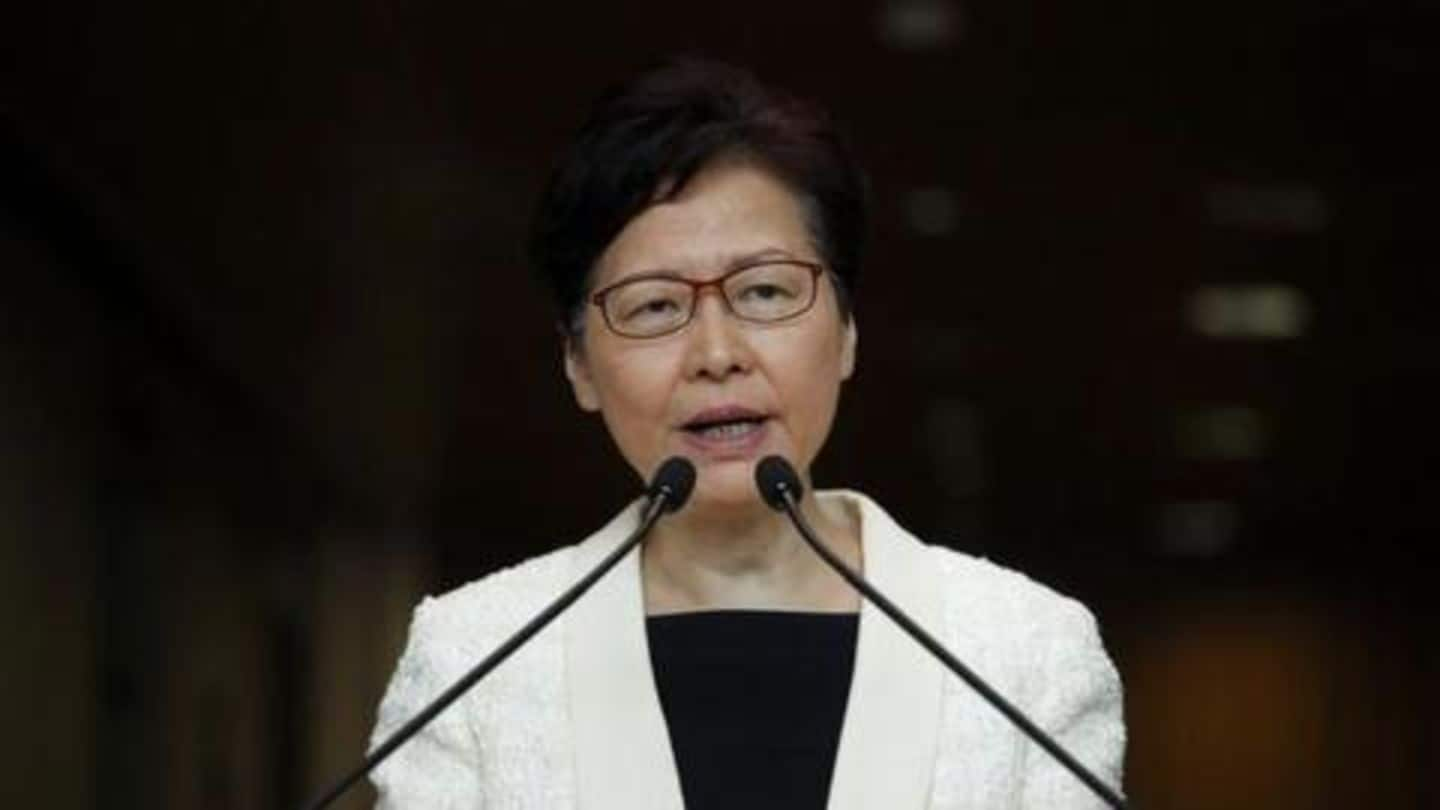
After months of unrest, Hong Kong leader withdraws extradition bill
What's the story
Following months of unrest, Hong Kong leader Carrie Lam on Wednesday announced the formal withdrawal of a controversial extradition bill, according to reports. The extradition bill was strongly opposed by Hong Kong citizens, who responded with massive and sometimes violent protests. The protests have since evolved into a demand for greater democracy. Earlier, Lam had declared the bill "dead" but didn't withdraw it.
Details
Government sources revealed the possible withdrawal of extradition bill
According to Reuters, the Hong Kong Chief Executive announced that the extradition bill has been fully withdrawn. Ahead of the announcement, news reports predicted a possible announcement of the bill's withdrawal. Earlier today, a government source told South China Morning Post that Lam plans to streamline the legislative agenda, as the Legislative Council is set to reopen in October after its summer break.
Information
Withdrawing bill easiest way to cool tensions: Government source
Speaking about the withdrawal, a government source had told SCMP earlier today, "This gesture to formally withdraw is a bid to cool down the atmosphere." Another source said that withdrawing the bill is the easiest way to alleviate the ongoing tensions in Hong Kong.
Twitter Post
Earlier in the day, news reports predicted the bill's withdrawal
JUST IN: Hong Kong leader Carrie Lam says controversial extradition bill has been fully withdrawn pic.twitter.com/Jm5g4T26gC
— Reuters Top News (@Reuters) September 4, 2019
Extradition bill
What is the extradition bill and why is it controversial?
For the uninitiated, Hong Kong had proposed a legislation in February that would allow extradition to mainland China. To note, Hong Kong was a British colony until it was handed over to China as a semi-autonomous territory in 1997. Lam had said the bill was introduced to prosecute a Hong Kong man wanted in Taiwan- another semi-autonomous region- for his girlfriend's murder.
Protests
Earlier, Lam had suspended the bill mid-June amid protests
Since March, the bill has been strongly protested by Hongkongers as they feared anyone could be arrested and detained in mainland China, where judges follow the Communist Party's orders, hurting Hong Kong's judicial independence. Amid protests, Lam indefinitely suspended the bill mid-June and as protests continued, declared it "dead." Lam was condemned for not wanting to see the bill withdrawn and being "prideful."
Information
Protests made headlines internationally in June
Although the protests began in March, they gained global attention when an estimated 2 million people took to the streets to protest the bill. Protesters also targeted the city's International airport disrupting thousands of flights in August. The airport continues to be barricaded by protesters.
Demands
Apart from bill's withdrawal, here are protesters' other demands
While the withdrawal of the bill was the protesters' main demand, the leaderless protests also present other chief demands including Lam's resignation, an inquiry into police brutality, the release of protesters who have been arrested, and greater democracy. Reportedly, many of the protests have resulted in clashes with the police, such as those last week when protesters responded to mass arrests violently.